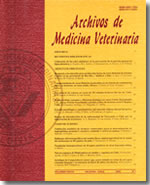Evolution of microbial respiratory activity in a Patagonian soil amended with salmon-farming sludge
Main Article Content
Abstract
Pollution of aquatic fresh water and soil is of great concern in the salmon farming industry. Water is the most important vehicle for the transmission of organic polluting agents, and for that reason the sediments (sludge) near to salmon facilities could become enriched reservoirs of pathogens and chemicals. A solution to this problem could be to incorporate the sludge into the soil under sustainable procedures. In order to investigate the addition of salmon sludge to soils, sediment samples from a pisciculture and a lake were applied to a degraded in the soil southern Chilean Patagonia. Microbial biological activity was evaluated under different salmon sludge addition rates: 25, 50, 75, 100 y 150 t ha-1 by using respirometry tests (C-CO2) in samples under closed incubation in laboratory. The results showed that microorganisms increased their respiratory activity along with time and increased sludge concentrations, indicating the amount of sludge that is possible to incorporate into a soil without causing adverse environmental effects.

